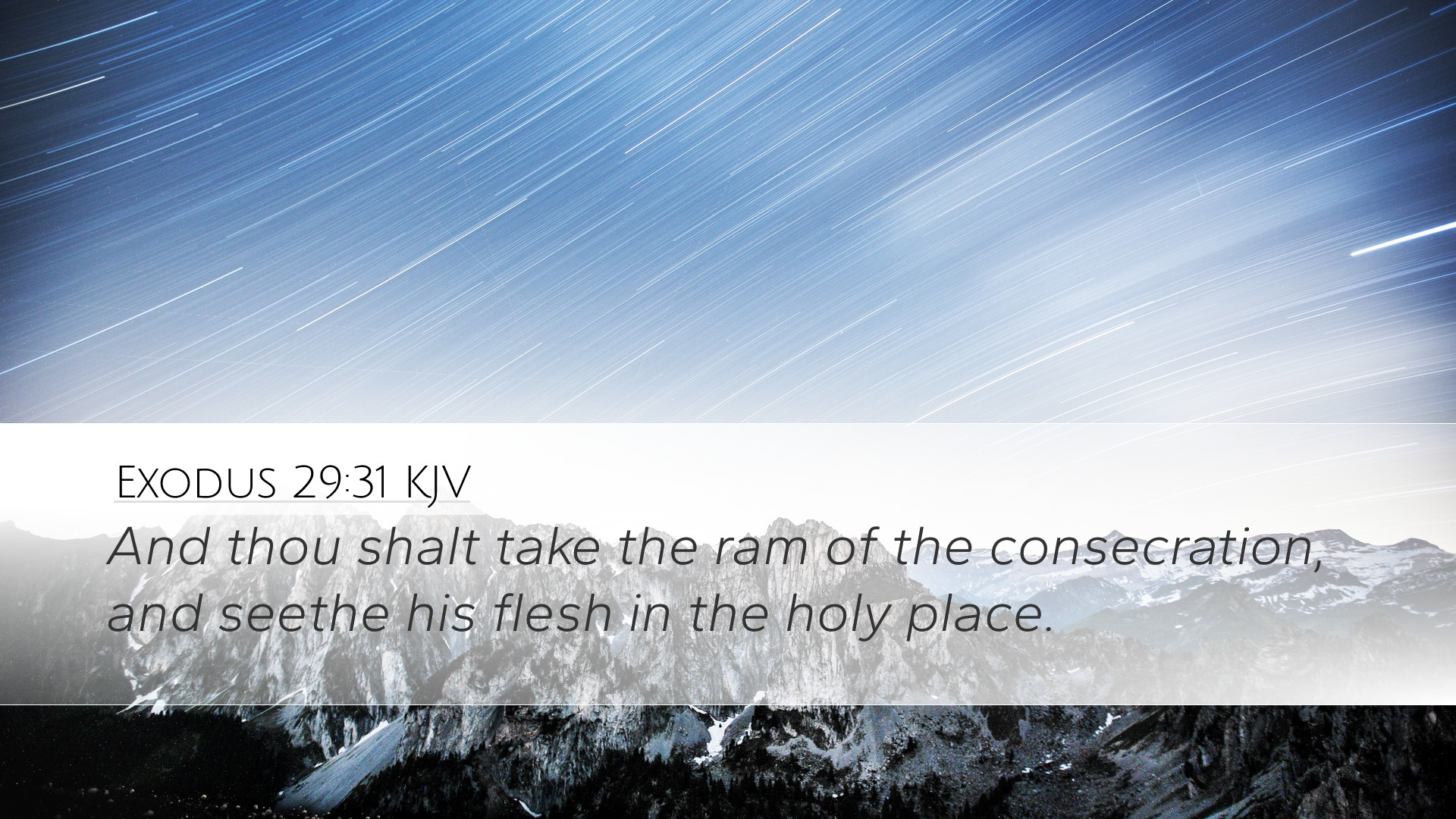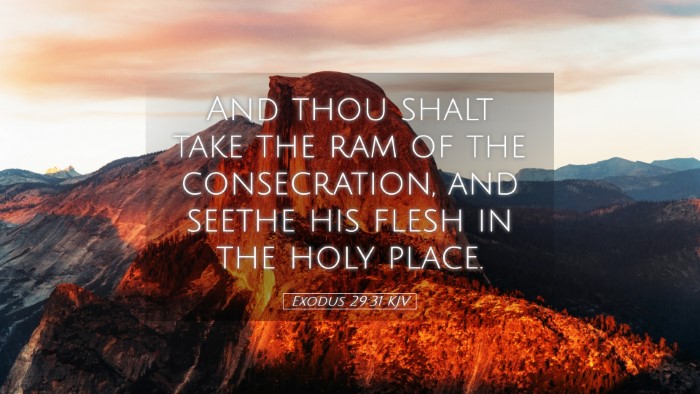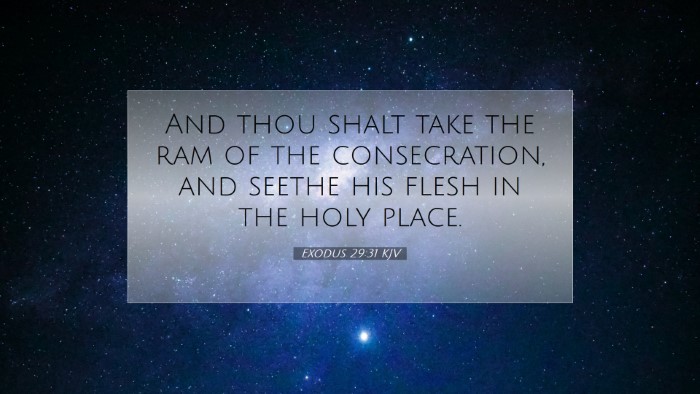Exodus 29:31 Commentary
Exodus 29:31 states, "And thou shalt take the ram of the consecration, and seethe his flesh in the holy place."
This verse is part of the instructions concerning the consecration of the priests and the offerings that were to be made.
In this context, it is important to see how this verse complements the overall theme of holiness and the necessary preparation for sacred service.
The act of boiling the flesh of the ram signifies the full dedication and sanctification of the priests for their holy duties.
Insights from Matthew Henry
Matthew Henry points out that the consecration of Aaron and his sons was a serious and solemn event.
The ram represents the atonement for sin and symbolizes the idea of sacrifice, which is central to the priestly function.
As he notes, the boiling of the flesh signifies thoroughness in their consecration; it relates to the purification and the necessity of being wholly devoted to God's service.
Henry further elaborates that the flesh being cooked in a holy place emphasizes the sanctity of the act, signifying that the priests were to engage in their service with reverence and a sense of divine authority.
This act solidifies the priests’ separation from common usage and their being set apart for the ministry.
Insights from Albert Barnes
Albert Barnes highlights the ritualistic nature of this act as it relates to the Levitical laws given to the Israelites.
He notes that the command to seethe the flesh of the ram occurs within a specific holy place, indicating that God is establishing sacred spaces where rituals would be conducted.
This emphasizes the seriousness with which God treats the ordination of His ministers and the need for an appropriate setting.
Barnes also comments on the symbolic significance of the ram, associating it with themes of sacrifice and commitment.
The seething of the flesh can be seen as a transformation of the animal into a holy offering, preparing the way for the priests to serve God in an acceptable manner.
Insights from Adam Clarke
Adam Clarke delves into a deeper understanding of the symbolism associated with the ram of consecration.
He notes that the specific act of boiling was not merely for culinary purposes but served to convey deeper theological truths.
The boiling represents the fiery trials and the ongoing purification that priests endure as they approach God’s presence.
Clarke emphasizes that this rite should be seen as a foreshadowing of the ultimate sacrifice made by Christ.
Just as the ram was consecrated through sacrifice, so too was Christ consecrated as the perfect High Priest through His own suffering and death.
The connection drawn illustrates how the Old Testament priestly functions pave the way for the New Testament understanding of Jesus’ role in salvation.
Thematic Reflections
-
Holiness: This passage reflects the call to holiness in ministry. The priests are reminded that their role is to serve God, requiring a life of purity and obedience.
-
Sacrifice: The ram symbolizes the necessity of sacrifice in the relationship with God. The act of consecration emphasizes the importance of atonement and the seriousness of serving God.
-
Preparation: The seething of the ram’s flesh signifies preparation not only as an external act but as an internal state of readiness to serve God.
-
Foreshadowing: The rituals indicate a future revelation of God’s ultimate plan through Christ, drawing connections between Old and New Testament theology.
Conclusion
In conclusion, Exodus 29:31 not only represents a historical moment in the ordination of the priests but also serves as a rich theological statement on the nature of holiness, the necessity of sacrifice, and the preparation required for those who minister before God.
Combining the insights from Matthew Henry, Albert Barnes, and Adam Clarke provides a multifaceted understanding of this singular verse, enriching the grasp of its implications for both historical Israel and contemporary followers of Christ.
As students, pastors, and theological scholars reflect on this passage, they can draw lessons on the seriousness of their calling and the comprehensive nature of God’s plans through history.


